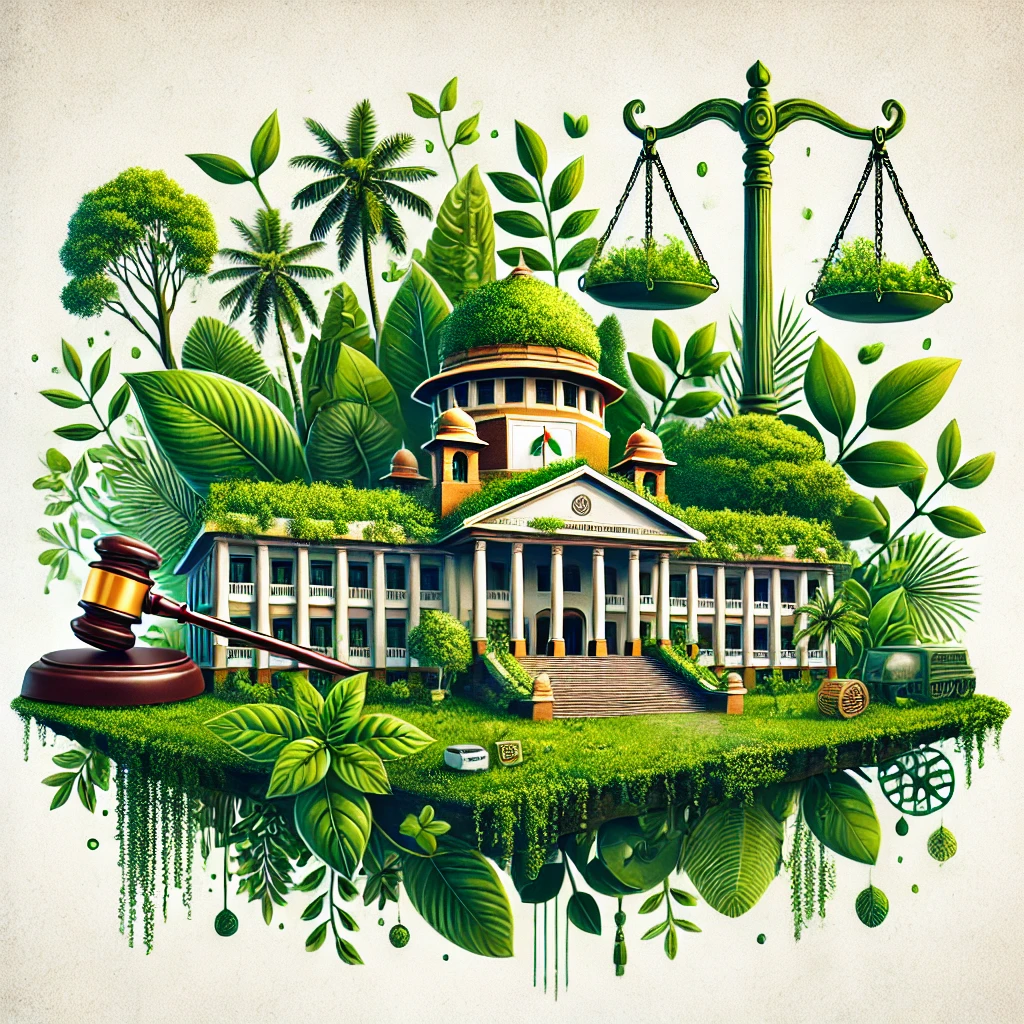Environmental laws at Pakistan
Pakistan has several environmental laws and regulations aimed at protecting the environment, but enforcement can often be inconsistent, and challenges such as rapid urbanization, industrial pollution, and deforestation remain significant. Below is an overview of Pakistan's environmental laws and policies:
Key Environmental Laws and Regulations in Pakistan:
Pakistan Environmental Protection Act (PEPA) 1997
The Pakistan Environmental Protection Act (PEPA) 1997 is the primary environmental law in the country. It establishes the legal framework for environmental protection in Pakistan and provides the Pakistan Environmental Protection Agency (PEPA) with the authority to enforce environmental standards.
PEPA sets guidelines for air, water, and noise pollution control, as well as waste management and hazardous chemicals.
It also requires the preparation of Environmental Impact Assessments (EIAs) for large-scale projects, ensuring that their environmental consequences are considered before approval.
National Environmental Policy (NEP) 2005
The National Environmental Policy (NEP) 2005 was developed to outline Pakistan's long-term environmental goals and address issues such as pollution, biodiversity loss, and the impacts of climate change.
The policy emphasizes sustainable development, integrated environmental management, and the need for public awareness and participation in environmental protection.
It also includes strategies for the conservation of water resources, forests, and wildlife.
The Environmental Protection Agency (EPA)
Pakistan established the Pakistan Environmental Protection Agency (PEPA) under PEPA 1997. The EPA is responsible for monitoring environmental conditions, setting pollution standards, and ensuring compliance with environmental laws.
The agency operates at both federal and provincial levels, with provincial Environmental Protection Agencies (EPAs) playing a key role in enforcing laws at the local level.
The Wild Life (Protection) Act, 1972
This law protects the wildlife of Pakistan, including endangered species, and regulates hunting and poaching activities. It is aimed at preserving biodiversity and maintaining ecological balance.
The law empowers government officials to designate protected areas and establish wildlife sanctuaries to conserve ecosystems.
The Forest Act, 1927
The Forest Act regulates the use of forest resources, with the goal of preserving forest cover and preventing deforestation. It also gives the government authority to manage forests and impose penalties for illegal activities such as unauthorized logging.
In recent years, deforestation has been a growing concern in Pakistan, particularly in the northern areas, and efforts have been made to curb illegal logging and promote reforestation.
The Water Act, 1963
The Water Act was enacted to prevent and control pollution of water bodies in Pakistan. It empowers the government to regulate the discharge of pollutants into water bodies and ensure the protection of water quality.
In addition, there are various regional and provincial laws that regulate water usage and protect local water resources.
The National Disaster Management Authority (NDMA)
Established in 2005, the National Disaster Management Authority (NDMA) is responsible for coordinating disaster management efforts, which are closely linked to environmental issues, particularly in the context of natural disasters such as floods, earthquakes, and droughts.
The NDMA works on disaster preparedness, response, and recovery, focusing on reducing the impact of climate-related events.
Climate Change Act (2017)
The Climate Change Act of 2017 established the Climate Change Council and Climate Change Authority to address the challenges posed by climate change. The Act emphasizes the development of strategies and policies to mitigate greenhouse gas emissions and adapt to climate impacts.
It includes provisions for monitoring and reporting on climate change progress and supports efforts to reduce Pakistan's carbon footprint.
The Air Quality Standards
Pakistan has developed specific air quality standards to regulate the level of pollutants in the air. These standards set permissible limits for pollutants like particulate matter (PM), sulfur dioxide, nitrogen oxides, and carbon monoxide.
However, air quality remains a major issue in urban areas, with smog in cities like Lahore becoming a growing concern.
Hazardous Waste Management
Pakistan has legislation to regulate the management of hazardous waste, including the Hazardous Substances Rules, 2003, which govern the handling, transportation, and disposal of hazardous materials.
The rules require that businesses dealing with hazardous waste must obtain licenses and adhere to guidelines for proper disposal and treatment.
Challenges in Enforcement:
Weak Enforcement: One of the main challenges faced by Pakistan’s environmental laws is weak enforcement. Despite the existence of laws and regulations, enforcement at the ground level can be inconsistent. Industrial pollution, illegal logging, and unregulated waste disposal remain persistent problems.
Lack of Public Awareness: Public awareness about environmental laws and regulations is limited. Environmental protection initiatives often struggle to engage local communities and raise awareness about the importance of sustainable practices.
Industrialization and Urbanization: Rapid industrialization and urbanization in Pakistan have put a strain on natural resources, leading to pollution, habitat destruction, and increased greenhouse gas emissions.
Climate Change Impact: Pakistan is one of the countries most vulnerable to climate change, facing extreme weather events like floods, droughts, and heatwaves. While the government has made efforts to address climate change, more comprehensive adaptation and mitigation strategies are needed.
Recent Developments:
The Billion Tree Tsunami: Launched in 2015 in Khyber Pakhtunkhwa province, this initiative aimed to plant one billion trees to combat deforestation. The success of this program has gained national attention, and there have been calls to replicate it in other parts of the country.
Plastic Waste Management: Pakistan has also taken steps to address plastic pollution, with certain provinces implementing bans on single-use plastic bags and promoting alternatives.
Conclusion:
Pakistan has a broad framework of environmental laws aimed at addressing pollution, conservation, and climate change. However, the implementation of these laws faces several challenges, including enforcement issues, limited public awareness, and the pressures of rapid industrialization. Despite these challenges, there have been positive steps in areas like forest conservation and climate change adaptation. Increased political will, better enforcement, and more public engagement could significantly improve Pakistan’s environmental situation.












comments